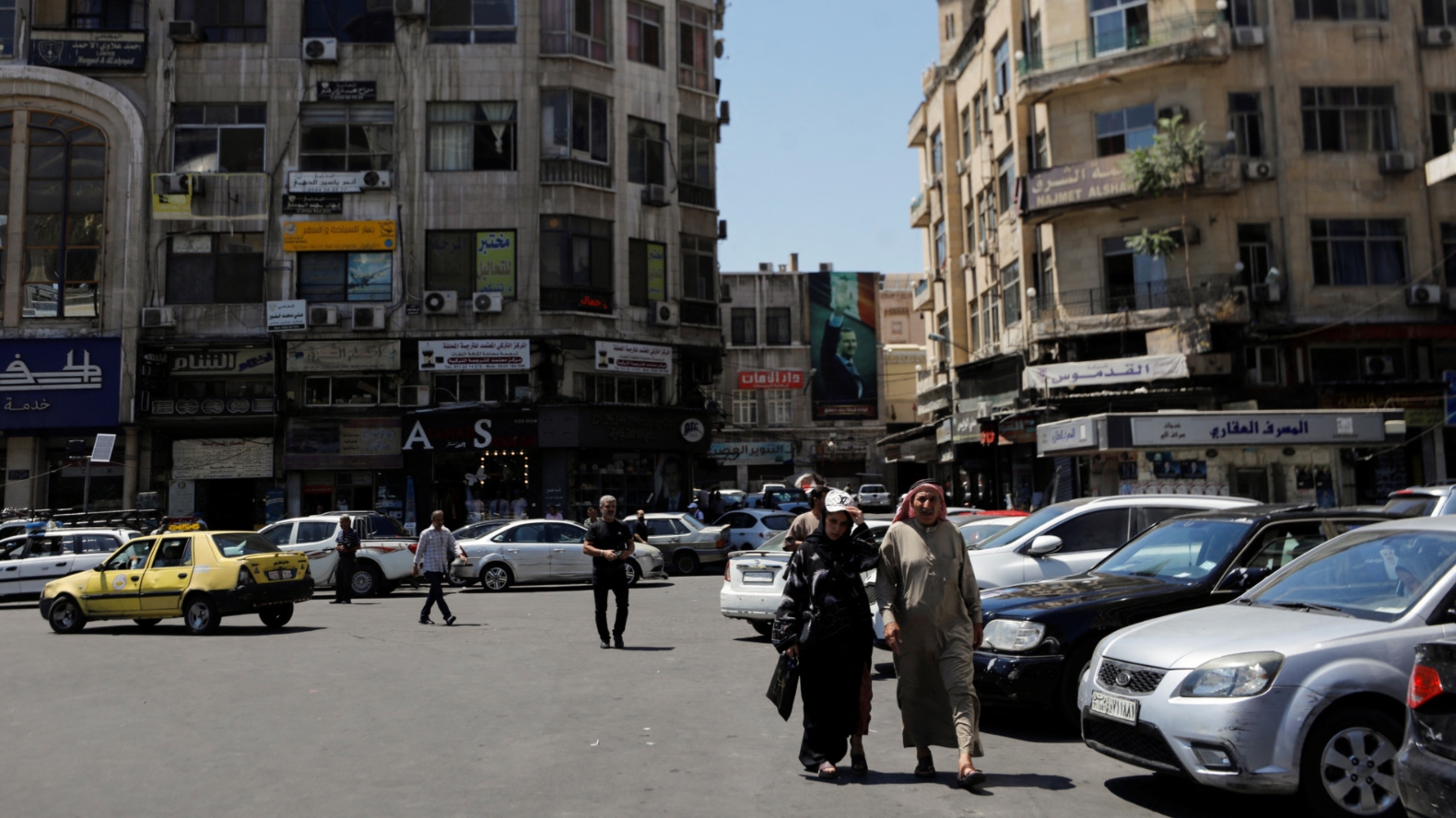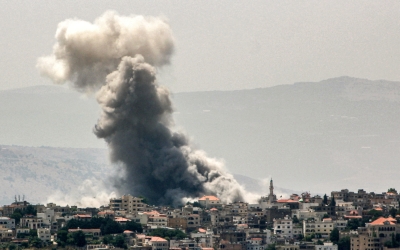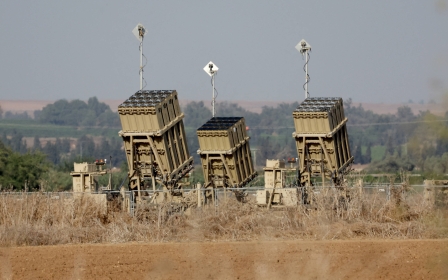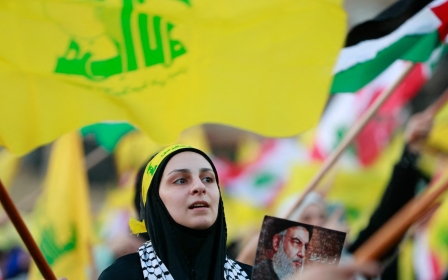Why Israel may have killed Syrian businessman as ‘warning’ to Assad

The reported Israeli assassination of prominent Syrian businessman Mohammad Baraa Katerji is one of the most high-profile killings in Syrian territory since the start of Israel’s war on Gaza on 7 October.
An official in an Iran-backed group told the Financial Times that Katerji, 48, was killed when a drone struck his car in Saboura, an area in Syria only a few kilometres away from the border with Lebanon.
No further information has been shared about the assassination at this point.
Katerji, who, along with his brother Hussam, enjoys very close ties to the Syrian government, became known as one of the country’s many war profiteers, often trading across enemy lines throughout Syria’s civil war.
“[Katerji] rose to prominence a few years into the [Syrian] conflict, especially thanks to his and his brother’s ties and influence in eastern Syria,” Benjamin Feve, a research analyst with Triangle, a Beirut-based think tank, told Middle East Eye.
New MEE newsletter: Jerusalem Dispatch
Sign up to get the latest insights and analysis on Israel-Palestine, alongside Turkey Unpacked and other MEE newsletters
“They both acted as brokers between the government and the Islamic State (IS) with regard to oil trade.”
Trading across battlefields
Katerji hails from Raqqa in eastern Syria, which IS once used as their capital city prior to their territorial defeat.
The businessman financially supported pro-government and Iran-backed groups in Syria, many of whom have fought fierce battles against IS.
According to an Israeli official speaking to the Financial Times, these groups included Lebanon's Hezbollah and Iran’s Quds Force, a branch of Iran's Revolutionary Guards in charge of the country's foreign operations.
Feve says that Katerji still managed to play the dangerous game of trading oil across the battlefields.
“Even though factions are fighting each other, they still have the incentive to cooperate,” he said.
“The Islamic State controlled most of the oil reserves, but they did not have any refineries. The refineries were under [government] control.”
Following IS’s defeat, Katerji supported trade between the government and the Kurdish-backed authority in northeastern Syria.
The Katerji brothers managed to gain monopoly over the oil sector, which was traditionally controlled by the Syrian government.
In addition to the oil trade, their empire would eventually encompass banking, construction, logistics, transport.
They, along with their businesses, are sanctioned by the US for “facilitating petroleum shipments and financing to the Syrian Regime,” according to the US Treasury website.
Unclear killing
Katerji’s killing raised several questions, particularly relating to the reasons why Israel would assassinate him.
While the motives remain unclear, Syrian researcher Haid Haid tells MEE it may be related to Katerji’s alleged financial and military support for Hezbollah.
Feve said there was scepticism regarding Israel’s culpability, especially in a climate where key people in the Syrian government are dying, with prominent adviser Luna al-Shibl, who died in a car crash in July, being the most recent case.
Furthermore, Israel has not typically targeted Syrian businessmen nor members of Assad's inner circle.
Feve and Haid agreed, however, that the nature of the attack is more in line with Israeli assassination methods.
Israel has yet to comment on the killing, but the anonymous Israeli official told the Financial Times that Israel did in fact kill Katerji due to his funnelling of money to Hezbollah during the war in Gaza.
They say the attack was to prevent others from carrying out similar activities.
“There has been a lot of escalation with Hezbollah in Lebanon… This could be a message sent to the Syrian [government] and bodies related to it,” Haid said, adding that Israel may want to tell the Syrian government that it would pay a heavy price should it continue supporting Hezbollah and other Iran-backed groups in a potential wider war.
“What we are seeing in the targeting of Hezbollah commanders, is that they are targeting people who play pivotal roles… in supporting Hezbollah or its operations.”
Israel has been engaged in near-daily hostilities with Hezbollah since the war on Gaza began, and has assassinated several high-ranking commanders from the group.
Feve says that Katerji's killing may not completely disrupt his operations, as his brother and business partner remains capable of running things.
Middle East Eye delivers independent and unrivalled coverage and analysis of the Middle East, North Africa and beyond. To learn more about republishing this content and the associated fees, please fill out this form. More about MEE can be found here.






